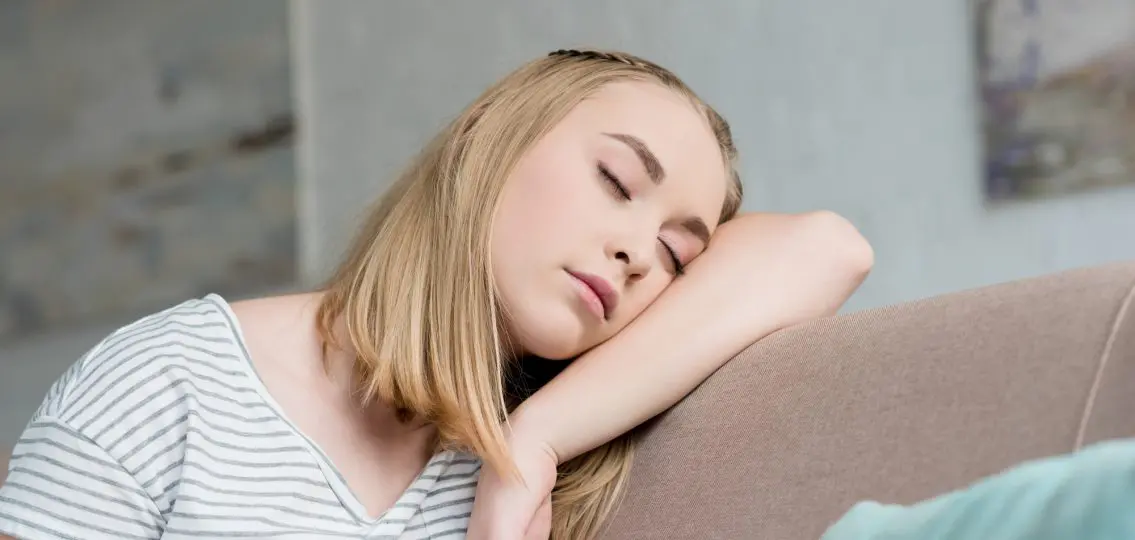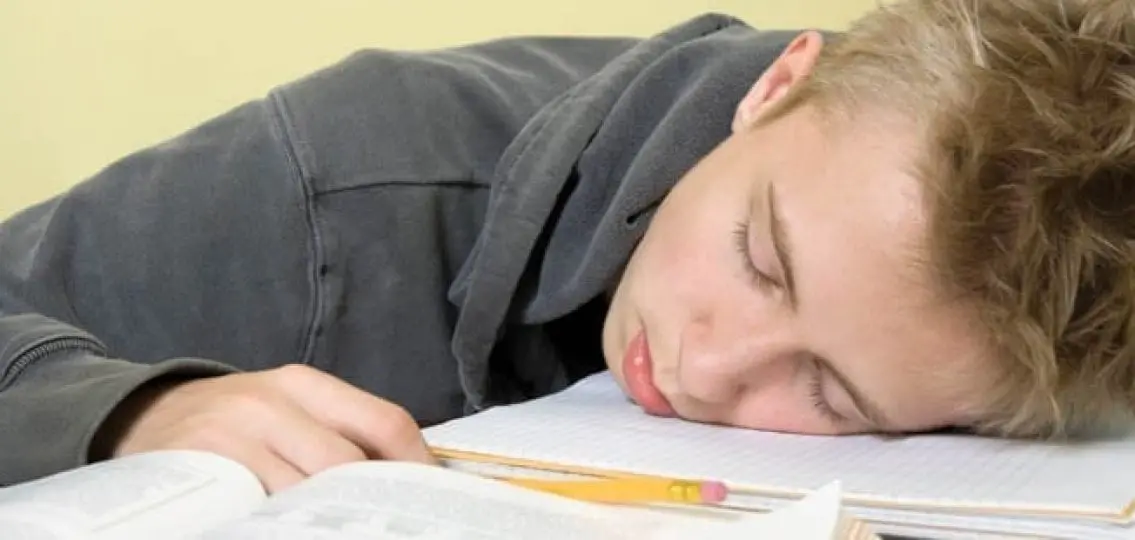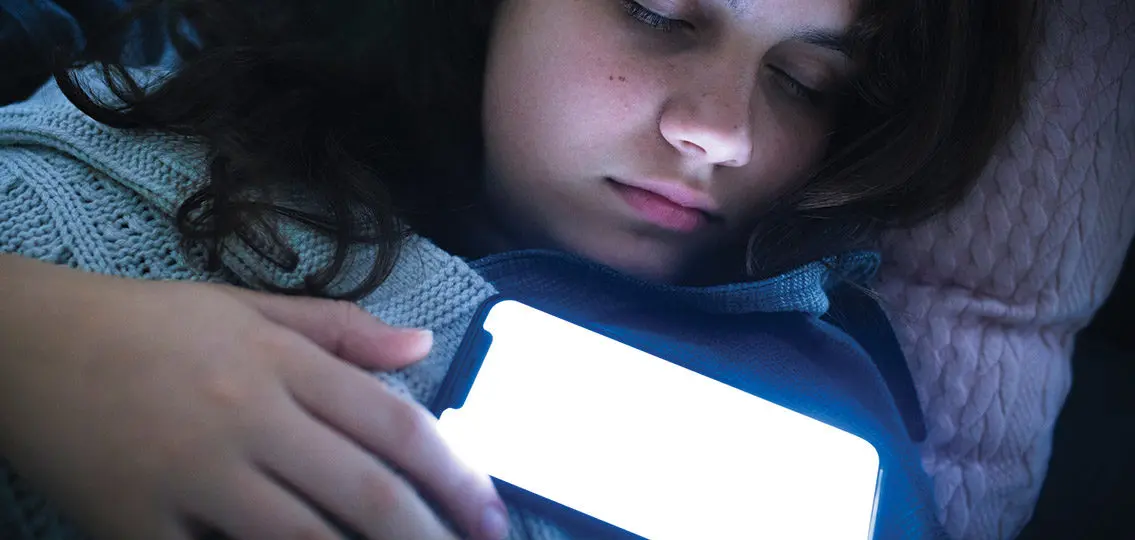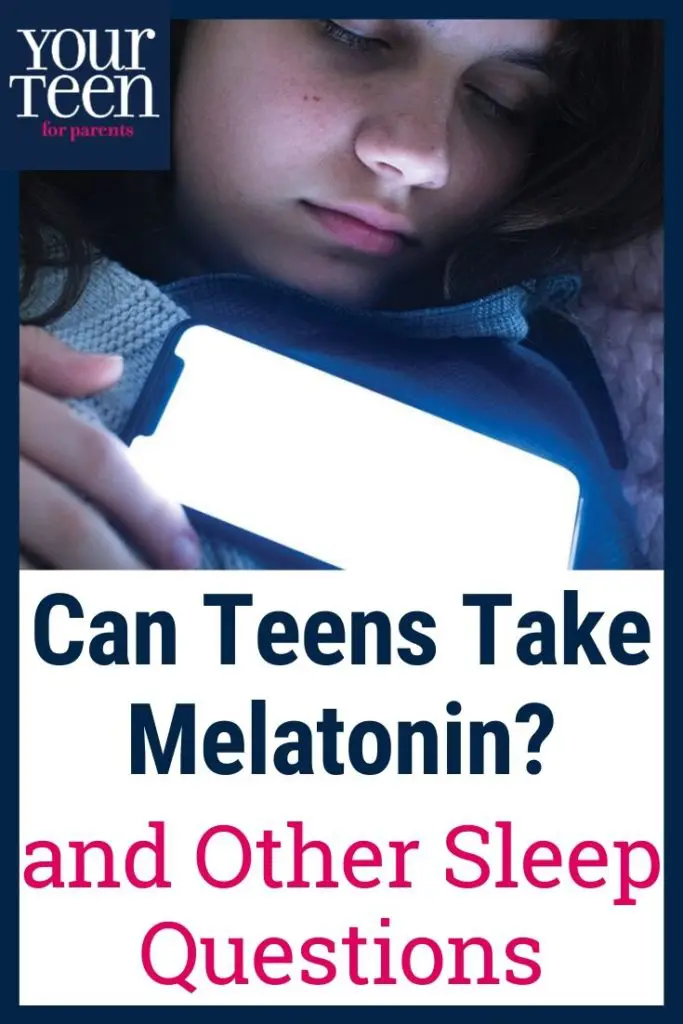Teenagers are the most sleep-deprived segment of the U.S. population. Many teens are chronically tired, yet report difficulty falling asleep. Is it safe for teenagers to take supplements such as melatonin? What can teenagers do to fall asleep more quickly and get more sleep? Your Teen asked our questions about teen sleep to James Maas, Ph.D., best-selling author of Power Sleep, Sleep for Success, and Sleep to Win! Professor Maas is a leading authority and international consultant on sleep and performance.

Q: Why do many teenagers stay up late and have problems falling asleep? Can we blame it all on phones?
Maas: The problem is not just phones. The adolescent brain is chronologically set to go to sleep at 2 a.m. and to wake at 11 a.m. Melatonin, a hormone produced by the brain, plays a role in sleep when we turn off the lights. However, the growth hormone that the body produces around midnight—which it does in significant amounts from puberty to about age 24—suppresses the production of melatonin. As a result, a teenager would best be prepared to sleep around 2:00 a.m. This is called Chronic Delayed Phase Syndrome, and every adolescent has it. This delay in falling asleep causes difficulty in waking up and being alert much before 11 a.m. So much for early school start times. We have the bodies of our teens in the classroom by 7:30 or 8:00 a.m. but their brains are back on their pillows.
Q: Are melatonin supplements a safe option for teens? Can teens take melatonin?
Maas: Artificial melatonin isn’t the best way to get your sleep. First, 3 mg of melatonin is the maximum amount that an adult needs, and many over-the-counter formulations start at 5 mg. Some even go to as high as 10 or 12 mg. You are peeing away a lot of melatonin that your body doesn’t need and can’t process. It does work, but there are other options on the market that work just as well as melatonin or better: (1) lavender, either in tea or in a spray; and (2) valerian root. These two over-the-counter supplements actually have been clinically proven to have a sleep-inducing effect.
Q: How quickly should a person expect to fall asleep?
Maas: A healthy, well-rested individual with no other issues should fall asleep in about 20 minutes. If you fall asleep instantly upon going to bed, that is a sure sign of chronic sleep deprivation.
Q: So how can teens get better sleep?
Maas: There are things you can do to establish a good sleep routine.
- Stay away from caffeine after 2 p.m. This includes coffee, soft drinks, and chocolate.
- Wake up and go to bed at the same time every day, including weekends. The whole effect of having a sleep routine and practicing good sleep hygiene is ruined if you stay up later on the weekend nights. This confuses your body’s circadian rhythms and can actually make you feel on Monday morning as if you were experiencing jet lag. You have to be consistent; bedtime on weekends should not be delayed by more than one hour.
- Turn off computer screens/phones/video games within one hour of bed. The blue light emitted by screens has the same effect as daylight on the brain. It suppresses the production of melatonin. If you have homework you really have to use the computer for, then wear blue light blocking glasses, which are readily available online.
- Take a warm bath or shower an hour before bed to relax and to signal to the brain that it’s time to begin to unwind.
- Avoid eating food late at night that is likely to disturb your sleep: heavy, greasy, spicy, or difficult-to-digest foods like pizza, garlic, or anything really fatty. Instead try fruit (bananas or grapes) or lean protein such as tuna.
- Get your homework done earlier in the afternoon or evening while you are still awake and alert. This will also reduce your stress if you don’t have so much homework to do in the evening close to bedtime.
- Watch how you are spending your waking hours. Teenagers don’t typically have great time management skills. They can get caught up on social media or on their phones, which are a huge distraction and eat up that part of the day when you should be in study mode. Catch up on your social things after your homework is over.
- Try a gadget called Litebook [which Dr. Maas helped research]. These handheld devices are about the size of an iPhone and contain about 40 to 50 blue daylight spectrum LED lights. It’s an awakening mechanism that kids can use starting around middle school to help them be better able to wake up in the morning. You use it for about 15 minutes every morning as soon as you wake up. After about a week, they will be tired around 10 to 11 p.m. and melatonin will flow.
Q: Why is it so important for teenagers to get enough sleep?
Maas: Sleep is really the one thing that underlies all of good health. When you are getting enough sleep, stress goes down and immunity goes up. It’s linked to greater longevity and reduced risk of car accidents, cancers, and heart attacks. If teenagers could add just one more hour of sleep to their daily routine, they would find that they have a higher GPA, that their athletic skills are better, and that their social life and ability to manage stress and anxiety improve. Everything hinges on getting enough sleep. If I could tell teenagers one thing, it’s this: If you want to do well in school and on the athletic field, getting more sleep is the single best thing you can do.






